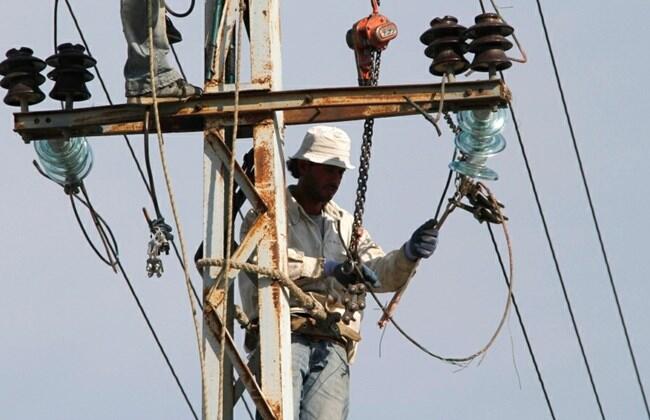A gas unit at south Lebanon’s Zahrani power plant was deactivated earlier this week, and will remain off line for four days in order for the necessary maintenance to be completed, the statement added. Earlier this week, a steam unit was also partially stopped at the Deir Ammar power plant due to a malfunction. The unit will take two days to repair, the statement added. “Hence, the production capacity of both the Deir Ammar and Zahrani power plants has decreased, [leading] to additional [cuts] in the power supply in most Lebanese areas. The situation will return to normal on the morning of Friday, July 24,” the statement said. Electricite du Liban added that it was attempting to compensate for the decrease in production. But technical sources at the Zahrani plant contended that maintenance and repairs to one of the plant’s two gas units mean that it could be another week before it can be returned to full service. The Zahrani plant produces 450 megawatts at full capacity, 150 from each of its two gas units, and another 150 from a steam unit that runs off of them. But the steam unit requires both gas units to run, so the plant is currently producing just 150 megawatts from its sole functional gas unit. The Zahrani plant supplies power to Beirut and some areas of Mount Lebanon and south Lebanon. Workers at the plant are waiting for parts to arrive from abroad, with sources saying that would take at least four days. Installation, testing and restoring the unit to service will reportedly take another three days. And the plant faces another hurdle in restoring its electricity production: a shortage of diesel fuel. Sources said the fuel stored in the plant’s reservoirs is only enough to operate both units for a few days, and that there have been no shipments of additional fuel to date. Currently, the power from Zaharani run through the main network is estimated at about four hours a day, rotating among the areas it supplies. The damage to Zahrani was directly felt in Sidon, the capital of the south, and reached its peak overnight Tuesday. There were only three to four hours of supply, rotated every six to eight hours. Different production sectors were also adversely affected by the power rationing, particularly the water sector. Government offices in Sidon were affected as well, with darkness, high temperatures and humidity during working hours hampering productivity. Other departments were able to use generators to stay open and operating. Mohammed Zaatari| The Daily Star











